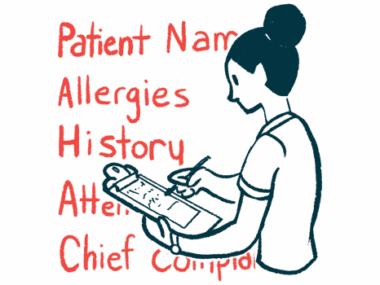The Same as It Never Was
Written by |

“And you may find yourself living in a shotgun shack …
And you may ask yourself, ‘Well, how did I get here?’ …
Letting the days go by, same as it ever was.”
Although I’m not proud of it, my life, pre-ALS, was largely a fortunate stream of autopilot idleness. Much like Talking Heads frontman David Byrne’s narrator in the song “Once in a Lifetime,” I had let the days go by.
Ironically, the lyrical “shotgun shack” confinement didn’t manifest itself until I was introduced to ALS and was suddenly thrust into a reality in which every additional day was beyond precious. The diagnosis forced an existential reckoning and examination of my purpose.
How would I get by? After taking stock of my assets and factoring in anticipated advocacy group assistance, I figured that I’d materially make do. Certainly not lavishly, or without sacrifice, but destitution and lack of care would not be my demise.
Was there any hope? The near unanimous opinion — shared by scientists, medical doctors, caregivers, and patients alike — was an emphatic no. Any contrarian thought was often judged to be of the “quackish” variety. Call me a quack, but I subscribe to a modified optimistic adage: “Hope springs internal.”
Of all the unknowns staring me down after diagnosis, the most troubling was how I would spend the balance of my days. I feared that anything surpassing even a modicum of value and productivity was an impossibility. Unlike many notable folks, I had no readily transferable skills, interests, or hobbies — from pre- to post-ALS — that would continue to offer me purpose after my diagnosis.
Not having a go-to passion to fall back on, I employed a “jack of all trades, master of none” approach. In so doing, my pursuits took on a revolving/evolving door quality. As each new doorway threshold beckoned, I suffered anxiety about whether I’d be equal to the task.
Initially I focused much of my attention on the disease itself. What was the best science regarding its etiology? Were there commonalities among the longer survivors? What could I proactively do to slow its trajectory? Over time I developed a personalized strategy of resistance. I tweak it as my situation changes. At a minimum, the effort leaves me feeling engaged.
Once the anti-ALS assault became lower maintenance, I widened my scope to the regulatory arena. I endeavored to get as familiar as possible with what governed drug approval and availability, as well as all benefits owed ALS patients. I contacted lawmakers and advocacy organizations for clarification, assistance, and future sponsorship. I continue to surveil that landscape and still reach out to decision-makers, as topically warranted.
It was with a fair amount of trepidation that I thought that writing might be a worthwhile outlet and use of my time. I’ve had a lifelong fascination with words, but the notion of writing my own content intimidated me. Fearful that I’d fall short in both creativity and style categories, I procrastinated approaching a publisher. Now, nearly four years later, crafting a column is of the utmost therapeutic and emotional importance to me.
When I think back to my original concern that, post-ALS, purpose would be impossibly elusive, I silently chuckle. From the vantage point of accelerated decay, I find urgent purpose in all directions. That phenomenon mitigates whatever ALS dares to throw my way. I affectionately refer to it as the “placebo effect of trying to do good.”
Recently I was presented with an activity to pursue that would generate value. While the objective is unquestionably of the highest merit, questions about my ability to contribute meaningfully plagued me.
I’ve become as involved as my immobility allows in my church. Up until two months ago, that meant volunteering for anything my pastor deemed appropriate. That panned out to be the one-time review of church governance documents and the occasional inclusion of one of my columns on the church Facebook page.
Pastor K visits me twice a month. Our conversations, particularly of late, have been dominated by the documented decline in national church attendance. In response, he is launching a revitalization initiative, whose foundation will be based on prayer.
Given my zeal for writing, he wants me to put my thoughts on “paper” whenever I’m so moved. He also asked if I’m willing to be a member of the reinvigorated prayer team. I struggle with anticipating my effectiveness in both roles, but the purpose is second to none. I’m all in.
My life before ALS crashed the party was a byproduct of serendipitous, directionless luck. It was predominantly inward-focused. Benefit to others was a nice plus. My life after is highlighted by planning, discipline, and a much more pronounced outward perspective.
The days still go by, only it’s the same as it never was.
Note: ALS News Today is strictly a news and information website about the disease. It does not provide medical advice, diagnosis, or treatment. This content is not intended to be a substitute for professional medical advice, diagnosis, or treatment. Always seek the advice of your physician or other qualified health provider with any questions you may have regarding a medical condition. Never disregard professional medical advice or delay in seeking it because of something you have read on this website. The opinions expressed in this column are not those of ALS News Today or its parent company, Bionews, and are intended to spark discussion about issues pertaining to ALS.







Linda Nolan
Inspiring, as always!